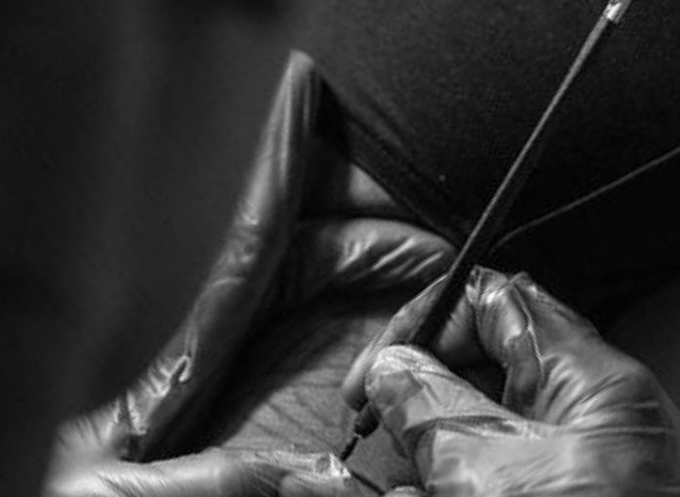By Hele Ikimotu
A threatened tradition will get fresh focus when a female Melanesian tattoo collective takes up a Spanish invitation.
The group, Mage’au: Melanesian Marks, is made up of three women – Julia Mage’au Gray, Aisa Pokarop and Toria Maladina.
They will soon attend the Traditional Tattoo and World Culture Festival in Santa Ponsa, Spain.
Gray said the trip was important for the group as it gave them an opportunity to promote the significance of the Melanesian marks movement and revive it.
“Since 2012, we’ve been pushing awareness to bring back our marks for our women and our men, and basically the festival picked up on it,” she said.
Gray said the practice holds historic significance to her as a Papua New Guinean.
“Men in our communities see women for their worth, and in the past we used our marks as statements and reminders for our men to treat us with respect.”
But because the practice is nearing extinction, men do not have that reminder, she added.
“It’s negligent if we let that part of our culture go. That’s why we feel this trip to Spain is very important.”
‘Real privilege’
Ema Tavola, who had work done on her by Gray, said it was a “real privilege” to be wearing the traditional marks.
“When we mark our bodies, we are creating an interface between how the world perceives us and how we want the world to see us,” she said.
“For me, the tattoo is a way to remind me every day where I come from and what makes me different.”
Tavola said Mage’au and her team were “advocates and protectors of the integrity of these marks, making sure that the people who wear them are wearing them for the right reason”.
Reina Sutton – a friend of Gray and gallery co-ordinator at Fresh Gallery Otara – said artists like Gray help people reconnect with their culture.
“I think it’s a great thing that Julia and her team are doing with their work, getting those marks back before they’re lost.”
She said the opportunity for artists to showcase their work internationally is rewarding as it creates conversation about Pacific art being used as a platform of change.
“I’m a huge supporter of what my friends and creative family are doing and I’m super-proud.”
Hele Ikimotu is a Niuean and Banaban-Gilbertese student journalist on his final year of a Bachelor of Communication Studies, majoring in journalism, at Auckland University of Technology.
- The Traditional Tattoo and World Culture Festival runs for a week from May 17.
- The Mage’au: Melanesian Marks team’s work can be viewed on Facebook and Instagram.













































